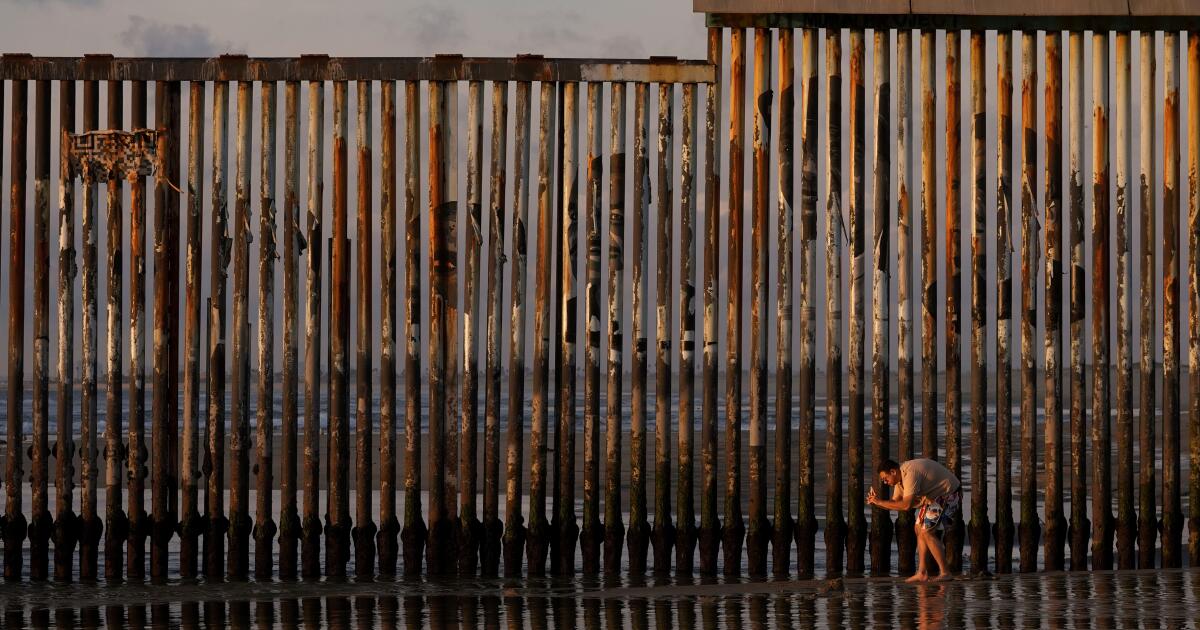Immigration policies closing doors for undocumented students
Feb. 11 (UPI) — About 90,000 undocumented students reach the end of high school each year and researchers say their opportunities to pursue higher education are rapidly shrinking.
The President’s Alliance on Higher Education and Immigration and the Migration Policy Institute found that about 75,000 students without legal status graduate annually. It is a milestone that has been encouraged by state and federal policy for decades as migrants seek citizenship in the United States, but rollbacks on tuition equity and other policies are making it harder for many of them to continue their education.
The study is based on U.S. Census Bureau and National Center for Education Statistics data from 2023, prior to President Donald Trump‘s return to the White House.
However, his more aggressive immigration enforcement tactics and pressure to end birthright citizenship and temporary protected status have made the future of these students one with even more challenges, Corinne Kentor, senior manager of research and policy with the President’s Alliance on Higher Education and Immigration, told UPI.
“We’re seeing a lot of institutions who are trying very hard to retain services for students and also comply with a bunch of very confusing directives coming at the federal level,” Kentor said. “There’s a fear about keeping programs and services that are particularly geared toward the immigrant-origin students available because the institution wants to make sure that they’re in compliance with federal directives.”
Prior to 2024, 25 states and the District of Columbia had policies guaranteeing undocumented immigrant students access to in-state tuition. This granted a path for those students to receive financial aid services and made enrollment in local colleges and universities possible for many.
Kentor said these policies helped these students not just enroll in their degree programs but also finish them.
In the past year, that has begun to change.
Florida’s legislature repealed its in-state tuition policy that had been in place for 10 years. The Department of Justice followed with a lawsuit to repeal the Texas Dream Act after its state legislature shot down numerous similar attempts. A permanent injunction blocking in-state tuition access for an estimated 12,000 students each year was granted.
The Justice Department was also successful in a lawsuit against Oklahoma.
The Trump administration has filed similar lawsuits against California, Virginia, Illinois and Minnesota. Kentucky officials settled such a lawsuit by agreeing to end their tuition policy in September.
Texas, Florida, California and New York account for nearly half of all undocumented immigrants graduating each year. California has about 11,000 who graduate annually, Florida has about 8,000 and New York, about 4,000.
The lawsuits by U.S. Attorney General Pam Bondi claim that offering in-state tuition to non-citizen students is “illegally discriminating against American students.”
Kentor said this is a common misconception that leads people to oppose opportunities for immigrants in education as well as other places in society like the workplace.
“There’s this sense that if one person gets a spot, then another person doesn’t,” she said. “The reality is that welcoming immigrant students into higher education, into workplaces, into the communities that they’re already a part of, creates more opportunities for U.S. citizens. There’s this scarcity mindset that moves into a competition mindset when actually providing opportunities just opens up more spots.”
As legal battles and policy decisions play out in courtrooms, statehouses and government offices, the effects are being felt in classrooms, at bus stops and in homes.
The population of undocumented students reaching the end of high school has continued at similar levels each year but this year’s class is in a particularly precarious position. Immigration raids across the country have not just seniors but all immigrant students, regardless of legal status, facing fears of losing family members to detention and physical harm.
Jeanne Batalova, senior policy analyst and data manager for the Migration Policy Institute and its Data Hub, authored the organization’s report “Graduating into Uncertainty: Unauthorized Immigrant Students in U.S. High Schools.” She told UPI that current immigration crackdowns are also affecting the education students are receiving in K-12 schools.
Batalova said California reported a 22% increase in absences in January and February 2025 over 2024.
This was as Trump returned to office and issued a slate of executive orders directing ramped up immigration enforcement. Among his executive orders was a day one order to end the sensitive locations policy that barred immigration officials from doing enforcement activities at schools, hospitals, churches and community event sites.
“This fear that anyone knocking on the door could be an [Immigration and Customs Enforcement] team busting through the door, I can only imagine the impact it is having on the entire family,” Batalova said. “When immigration enforcement ramped up at work sites during the first Trump administration, the impact on mental health was very noticeable. There was difficulty focusing on studying for children whose parents or family members were affected. At that time, kids themselves were not in the line of fire, so to speak.”
Ending policies like the sensitive locations policy and reversing course on pathways to higher education mark a change in direction from more than two decades of bipartisan support for paths to citizenship.
“For this particular population, education, both secondary and post-secondary education, has always been closely tied to their opportunity to legalize their status,” Batalova said. “A status that they themselves had no control over when they were first brought here as young children, and second, by policymakers in the United States.”
Batalova said education has been a “major engine for social and economic mobility” because it opens doors to new career opportunities and self-improvement. At a time when the president is offering a “gold card” for wealthy migrants to buy their way into U.S. citizenship, closing doors to undocumented children is a stark contrast.
“At a time of anti-immigrant rhetoric and stepped-up enforcement on the part of this administration, the future for the students is uncertain,” Batalova said. “Not only in terms of if they can go on to pursue a college degree because of state tuition. It’s if they can go outside to the library, to the university, as well as the mental impact of studying.”


